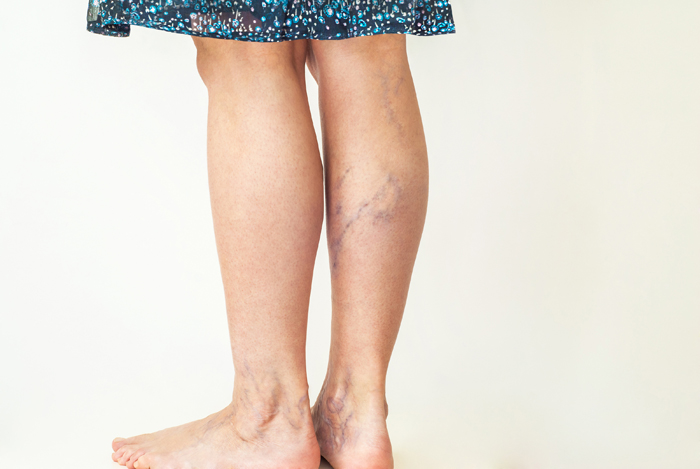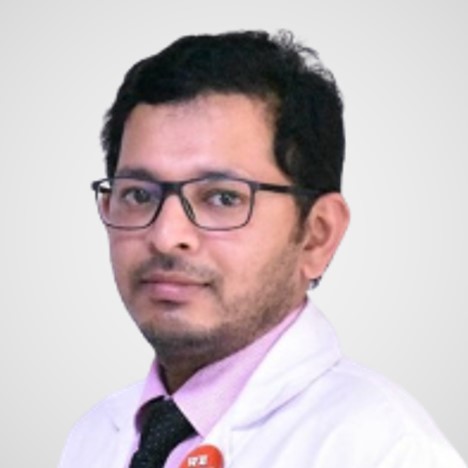Vascular Surgery
The term 'vascular' refers to the blood vessels in our body. Our vascular system comprises the arteries, veins, and lymphatic nodes that transport blood throughout the body. The vascular system carries blood that circulates oxygen and other nutrients between the organs. They also contain lymph fluids involving lymphocytes that attack the bacteria in the blood.
The arteries, arterioles, veins, venules, and capillaries that make up the vascular system, could malfunction and develop illnesses. This illness could turn into severe, often life-threatening disorders, which would require diagnosis and surgical intervention. If you have been experiencing the symptoms of vascular diseases, you should consult a vascular surgeon.

What are Vascular Surgeries?
The vascular system's diseases require medical therapy, medication, and minimally invasive catheter procedures and surgeries. Vascular surgeries are often referred to as surgical reconstruction procedures, cardiac surgeries, open surgeries, and endovascular techniques.
Vascular surgeries include surgeries performed to treat varicose veins, deep vein thrombosis, varicocele, venous ulcers, etc. Surgeries are also required for thrombophlebitis, Abdominal Aortic Aneurysm (AAA), atherosclerosis, pulmonary embolism, and other diseases.
What are the Different Types of Vascular Surgeries?
A vascular surgeon could advise you to undergo one of the different vascular surgeries, depending on your disease's exact nature. Some of these are:
- Vertebral artery disease biopsy
- Venous ulcers surgery
- Thrombectomy
- Deep vein thrombosis surgery
- Vascular bypass grafting
- Angioplasty
- EVAR and TEVAR
- Sympathectomy
- Carotid Endarterectomy
- Surgical Revascularization
What are the Causes of Vascular Disorders?
Since there are many kinds of vascular diseases, their causes can vary, depending on the disorder's exact nature. Some of the primary causes are:
- Genetics
- High cholesterol
- Injuries
- Infections
- Medications
- Aging
- Obesity
- Lack of exercise
- Smoking
- Sedentary lifestyle
What are the Symptoms You Might Experience?
Since the network of the aorta, carotid arteries, lower extremities, veins, varicose veins, and lymph nodes combine to form our body's circulatory vascular system, it is difficult to identify the symptoms experienced by the patient.
Some of the general symptoms of vascular diseases are:
- Pale, bluish skin
- Sores on feet, toes, and heel
- Weak pulses
- Gangrene
- Angina - Chest pains
- Weakness - fatigue
- Sweating
- Pulsating pains in arms, legs, torso, neck, back, face
When Should You See a Doctor?
Even though the severe symptoms are not visible and identifiable initially, you should check these symptoms for early signs of vascular disorders:
- Pain in the legs when walking
- Swelling, aching, discoloration of legs
- Formation of ulcers and wounds on the legs
- Blurred eyesight, tingling numbing sensations, disorientation
- Sudden, severe backaches
These are the signs of vascular diseases like aneurysms, stroke, or PAD (peripheral artery disease). If you or your family member is experiencing either of these symptoms, you should immediately consult a doctor. Specialists like vascular surgeons could diagnose and treat your disease.
Request an appointment at Apollo Spectra Hospitals
Call 1860 500 2244 to book an appointment
How can Vascular Disorders be Treated/Prevented?
Some cases of vascular diseases are hereditary and caused by genetic factors that are out of your control. Here are some preventive measures to keep in mind:
- Quit smoking
- Exercise regularly
- Avoid sitting or staying in the same physical position for longer durations
- Ensure that the weight is under control
- Avoid oily foods that can increase the cholesterol level
- Keep the blood sugar levels under control
- Avoid stress and hypertension, and check your blood pressure levels
Conclusion
Vascular surgeries are a necessary form of medical treatment against vascular diseases and disorders. Experienced vascular specialists in Bangalore are fully equipped to treat your diseases and provide you with the right medical care.
Vascular diseases should not be ignored or taken lightly in any case. They can further deteriorate your medical condition and could potentially cause irreversible damage or even prove to be fatal. If you notice any early signs or symptoms of a vascular problem, do not prolong your medical consultation.
Call 1860 500 2244to book an appointment at Apollo Hospital to request a consultation from a vascular surgeon near you. Our team of cardiologists, cardiovascular specialists, and vascular surgeons is fully equipped to help you recover from your vascular diseases.
Approximately 4-8 weeks are required for a patient to recover from a vascular surgery fully. Depending on the patient's complications and conditions, this time window could vary within the same range.
- PAD - Peripheral artery disease
- AAA - Abdominal aortic aneurysm
- CVI - Chronic Venous Insufficiency
- CAD - Carotid Artery Disease
- AVM - Arteriovenous Malformation
- CLTI - Critical Limb Threatening Ischemia
- DVT - Deep Vein Thrombosis
Our Doctors
DR. VARUN J
MBBS, DNB (Gen Surge...
| Experience | : | 15 Years Experience |
|---|---|---|
| Speciality | : | General & Laparoscop... | Location | : | Koramangala |
| Timings | : | Mon, Wed & Fri : 9:3... |
DR. VINAY NYAPATHI
MBBS, MD (Radiodiagn...
| Experience | : | 27 Years Experience |
|---|---|---|
| Speciality | : | Vascular Surgery... | Location | : | Koramangala |
| Timings | : | Mon, Wed, Thur & Sat... |
Our Top Specialities
NOTICE BOARD
CONTACT US
CONTACT US
 Book Appointment
Book Appointment




.svg)
.svg)
.svg)
.svg)








